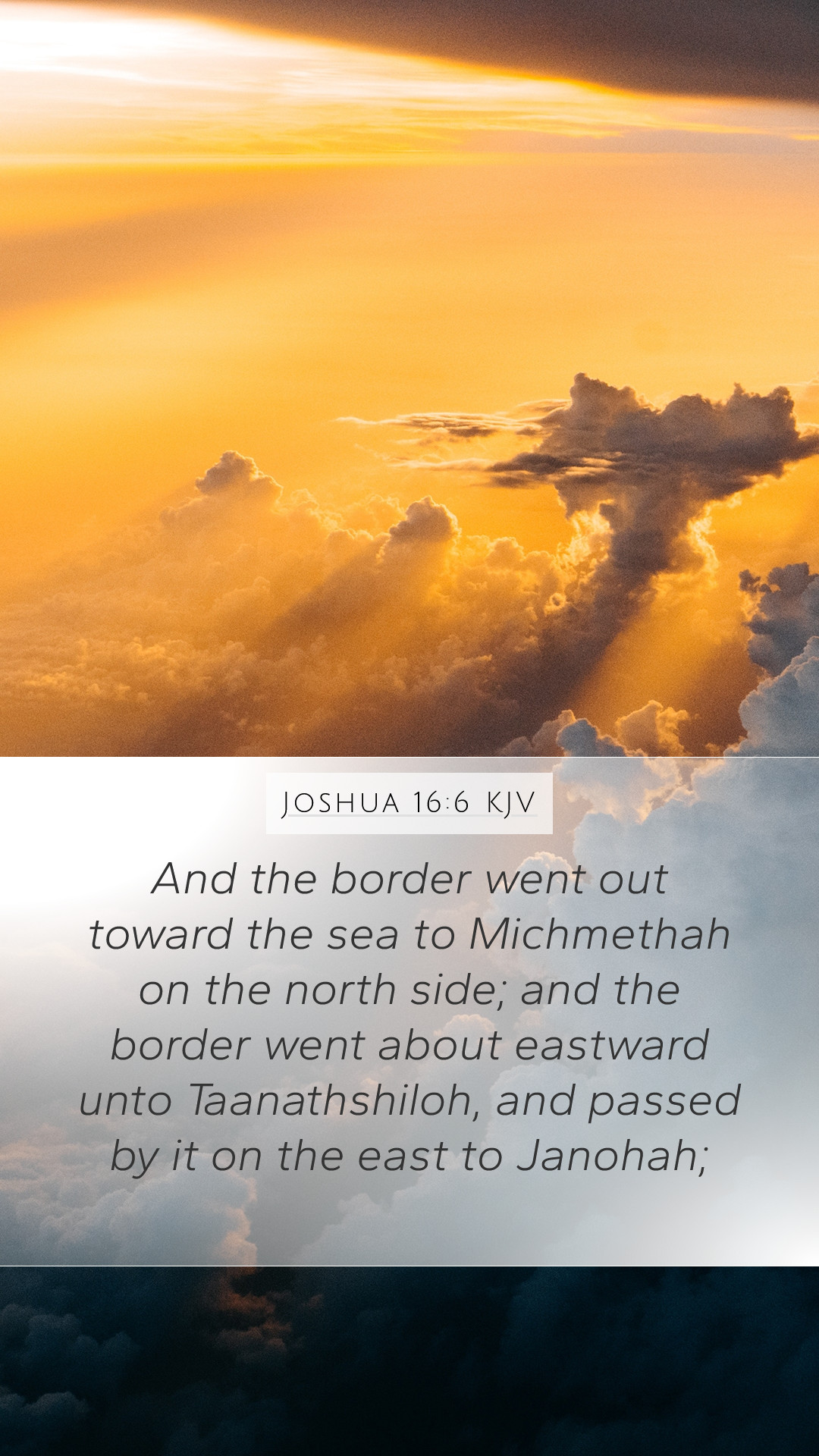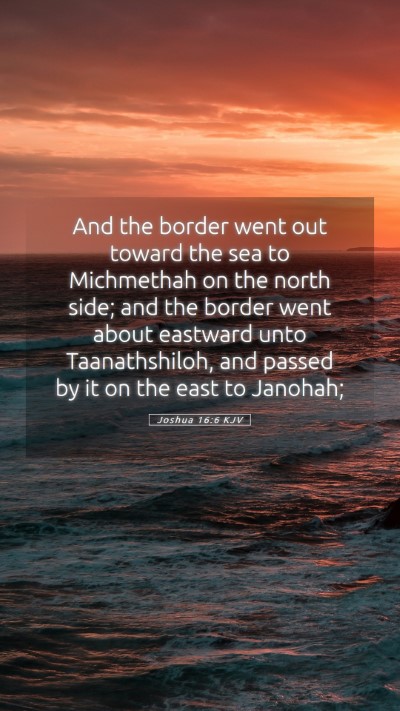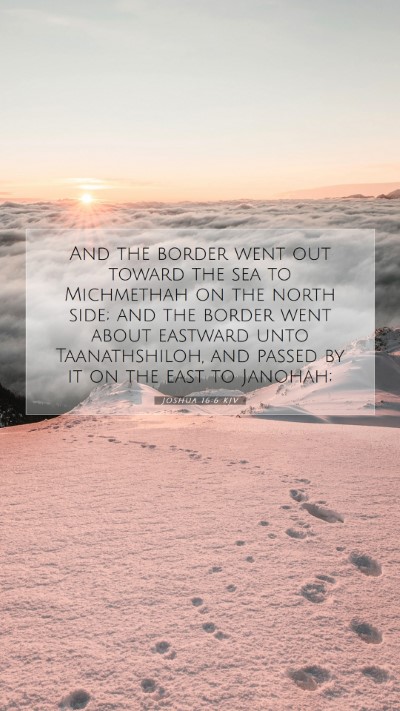Old Testament
Genesis Exodus Leviticus Numbers Deuteronomy Joshua Judges Ruth 1 Samuel 2 Samuel 1 Kings 2 Kings 1 Chronicles 2 Chronicles Ezra Nehemiah Esther Job Psalms Proverbs Ecclesiastes Song of Solomon Isaiah Jeremiah Lamentations Ezekiel Daniel Hosea Joel Amos Obadiah Jonah Micah Nahum Habakkuk Zephaniah Haggai Zechariah MalachiJoshua 16:6 Meaning
What is the meaning of Joshua 16:6?
And the border went out toward the sea to Michmethah on the north side; and the border went about eastward unto Taanathshiloh, and passed by it on the east to Janohah;
Joshua 16:6 Bible Verse Meaning
Understanding Joshua 16:6 - Bible Verse Commentary
Joshua 16:6 states, "And the border went out toward the sea to Michmethah on the north side; and the border turned about eastward unto Taanathshiloh, and passed by it on the east to Janohah." This verse is part of the larger narrative describing the division of land among the tribes of Israel. In this commentary, we will explore the meaning of this passage, its significance, and its relevance to current Biblical study practices.
General Context and Background
The book of Joshua primarily focuses on the conquest and division of Canaan, which God promised to the Israelites. The land was allocated among the tribes through various boundaries drawn by the leaders of Israel. This particular verse describes part of the territorial boundaries set for the descendants of Joseph, specifically Ephraim, in the context of the geographical layout of the region.
Insights from Public Domain Commentaries
Matthew Henry's Commentary
Matthew Henry notes that the detailed nature of the land descriptions emphasizes the precision of God's promises. The boundaries are not arbitrary; they signify God's providence and careful planning in distributing the land. Each physical location mentioned serves a purpose in illustrating God's faithfulness to Israel's ancestors.
Albert Barnes' Notes on the Bible
Albert Barnes provides a further exploration into the geographical significance of the verse. The mention of specific cities like Michmethah and Taanathshiloh indicates the historical context in which these cities were involved in past events in Israel's history. The delineation of borders shows God’s intentional guidance in leading His people to their promised inheritance.
Adam Clarke's Commentary
Adam Clarke expounds on the symbolic nature of the borders mentioned in this passage. Borders can represent the separation of the sacred from the profane, indicating the importance of the land as a holy space for the Israelites. Clarke suggests that understanding these boundaries can deepen one's grasp of Israel’s identity and relationship with God.
Spiritual Significance and Application
The significance of Joshua 16:6 extends beyond geographical descriptions; it reflects God's promises and His faithfulness. The boundaries mark not just land but the fulfillment of God's covenant with the Israelites. For contemporary readers, this can serve as a reminder that God actively fulfills His promises.
Cross References
- Genesis 49:22-26: The blessings conferred upon Joseph, linking to the inheritance of land.
- Deuteronomy 33:13-17: Moses’s blessings reflect on the tribes, highlighting God's intentions for Joseph's legacy.
- Nahum 2:5: This verse contrasts the ongoing divine plans for Israel’s neighborhoods and cities.
Conclusion
Understanding Joshua 16:6 requires a blend of historical insight, geographical analysis, and spiritual reflection. Through the commentaries, one can appreciate the intricate details of God's promises and learn to apply Biblical teachings into everyday life. For those studying the Bible, it invites an exploration of the importance of land, identity, and belonging in the context of faith.


